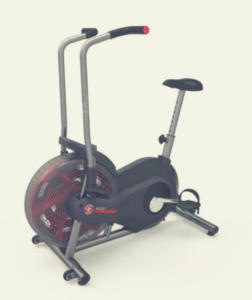A svelte body is coveted by many. However, did you know that lean muscle mass doesn’t just improve your looks but your health too?
There are many health benefits to lean muscle that only increases as you age.
Gaining muscle is a science and we have all the answers on how to build lean muscle. Read on to discover why you should build lean muscle starting today.
How to Build Lean Muscle Mass
As we mentioned, gaining muscle is a science. You’ll find dozens of resources on the topic but some of them aren’t legitimate and recommend you try strict diets and exercise routines.
While some bodybuilders or people that are in competition mode may need to adhere to these strict programs, the average person trying to lose weight doesn’t need to go that far.
You can make some simple changes and still build lean muscle mass. How? There are some tips you can follow that are backed by science to help you build lean muscle.
One tip that frequently gets told to people is to eat breakfast.
Breakfast will help with a boost of energy to get your day going and provides you with health benefits like improved memory and cognitive function.
It can also help you with your nutritional needs to either fuel your workout or keep your body from leaving an anabolic state.
Push your muscles to their limit. You want to do each set until you reach muscle fatigue. You want to limit your rest intervals too.
Lifting with a lower rest interval will allow the production of testosterone and human growth hormone.
You don’t always need to lift heavier to build muscle. Studies have shown that lifting at a higher volume with lower reps and lifting at a lower volume with higher reps will still build the same amount of muscle.
Provided you are training the days per week.
Another way to gain lean muscle requires you to eat more. Yes, that’s right! You need to eat more food, specifically more protein, and carbs.
Why?
Carbs help fuel the body for your workouts, while protein helps build and repair muscles.
Some people will benefit from adding extra calories too. You want to make sure you’re eating the right foods.
Avoid processed foods and even protein bars. You can become too reliant on them for your protein needs when you should get your protein and calories from fresh, whole foods.
There are many online tools you can use to input your activity level, weight, height, and age. It will calculate how many calories from each macronutrient you should consume.
Best Exercises
Many people make the common mistake of only performing single-joint exercises. It’s no doubt these exercises can help build muscle, but they only go so far.
You need a combination of both isometric and isotonic exercises.
Isometric
- Plank
- Glute bridge
- Wall sit
- Most yoga poses
Isotonic
- Squats
- Pushups
- Crunches
- Bicep curls
Things You Want to Avoid
We all want to build muscle the right way.
There are many things you do in training and daily life that you might not know affects how you build muscle.
Not Sleeping Enough
Research has shown that a lack of sleep affects how you build muscle.
Your protein synthesis activity decreases which leads to muscle loss and makes it harder to repair the muscle.
A lack of sleep has also been found to decrease the amount of the growth hormone needed to help build muscle and keep it healthy.
Dehydration
Dehydration will make it harder to get through your workout. Your body needs a certain level of fluids to function optimally.
Dehydration also can cause you to feel hungry when you’re not causing you to overeat.
No Variety
You want to develop a routine. However, you don’t want to keep performing the same exercises over and over.
This doesn’t allow for your muscles to grow. You can try different variations of an exercise or increasing the reps or weight.
Skipping Cardio or Overdoing It
Cardio does burn fat and helps build muscle. Studies have shown that endurance training coupled with strength training at least twice a week can increase explosive strength.
This helps rapidly build muscle fibers and increase lean body mass.
However, there you can overdo your cardio. Cardio takes a lot of energy and could affect your lifting. You also need to consume as much as you’re burning for calories and protein.
Why?
Your muscles need an anabolic state to repair and function properly.
Not Tracking Your Workouts
You might have a set time you workout or do it on a whim. However, it’s important that you track your workouts.
Not only do you get to track your progress, but it has psychological effects.
A study found that tracking a goal and doing frequent check-ins increases the likelihood you’ll stick with it and succeed.
Avoiding Supplements
Look, we all know some guys take the gym game too seriously.
They take steroids and unregulated substances that will definitely build muscle but in an unhealthy way.
We are strictly talking about supplements like BCCAs, protein shakes, beta-alanine, and creatine.
Studies have shown that beta-alanine combined with creatine and BCCAs built more lean muscle mass than those who only took creatine.
Not Eating Before a Workout
Some people feel sluggish or not on top of their game when they eat a heavy meal before a workout. This can cause them to completely skip a meal altogether.
However, studies have found that skipping meals before a workout can interfere with your muscle building and you may lack the fuel to perform at 100%.
It’s recommended that you eat at least three hours prior to a workout and within three hours after a workout.

Benefits to Lean Muscle Mass
There are many benefits to building lean muscle mass. Anyone can achieve this look and you don’t have to follow a strict diet or exercise program to achieve it.
Many people begin a program to change their overall look and not necessarily for their health. But let’s take a look at what it could do for you.
Look Better
Typically, this benefit tends to hold the most weight so to speak. Most people that start a new diet and exercise regime do it to look better.
Why?
You look better, then you will feel better. If you compare muscle to fat in pounds, the muscle will take less space in your body composition than fat.
However, this doesn’t mean that muscle weighs more than fat.
They weigh the same. But muscle will make you look thinner or slender even when your number on the scale stays the same.
Improves Posture
Believe it or not, your muscles help you stand up. They’re responsible for keeping you upright. Each time you stand or even sit, your muscles are at work.
When your muscles are weak and unused, they become tired. We start to slouch. This can cause us to feel pain or stiffness in the neck or back.
When you exercise, you build strength in your muscles. Your posture improves and you can hold certain positions for longer without any pain or stiffness.
Burn More Calories
There are many fad diets that promise to get your metabolism revving. However, the key to weight loss is calories in versus calories out.
Research has shown that one pound of muscle burns ten calories per day, but one pound of fat only burns two calories a day at rest.
It’s not the biggest difference but when you add more muscle, you’ll burn extra calories even at rest.
When you’re exercising, it can help burn that extra 30 to 50 calories that you’d normally have to work harder to burn.
Stronger Bones
As we age, bone health becomes a priority. Our bones are more prone to diseases like osteoporosis or fractures and breaks.
This may not seem that serious, but the frailty of the bones could lead to falls and immobility. Research has found that you can delay or even reverse bone issues.
In one study, men with lower skeletal muscle mass had weaker and thinner bones. To prevent weak bones, you want to work on building your skeletal muscle mass.
Protects and Prevents Insulin Resistance
When you have a higher fat mass body composition, your body is unable to clear the blood of excess glucose.
This causes insulin resistance. The longer your body composition is made of fat and unable to rid glucose, the development of Type 2 Diabetes.
This can occur at any age.
How does lean body mass prevent that?
Your body will transport the excess glucose to your muscles and clear it from your blood.
One study found the higher your muscle mass, the better your insulin sensitivity and you have a lower risk of developing diabetes.
It also found that a 10% increase in your muscle-skeletal mass contributed to an 11% decrease in insulin resistance.
Decreases Your Fall Risk
Your lower leg muscles are responsible for maintaining your balance. When you have weak leg muscles, you’re more prone to fall or injure yourself.
Research has found that people with decreased muscle mass were more than two times likely to fall and break a bone such as their hip, leg, arm, collarbone, or wrist.
Most people recover and can go on with their lives.
However, age and the severity or area of the break, like the hip, can cause major health complications.
Hip fractures increase your risk for mortality and are associated with a higher risk of death during the first year after a fracture.

Prevents and Helps You Recover from Illness or Disease
When you’re sick, your body and the immune system works harder than usual. To help aid your body, you’ll need to change your diet to support immune system function.
Proteins and vitamins help with recovery. How much you’ll need will depend on what you’re battling.
For example, cancer and burn victims need an excess amount of protein, usually around four grams per body weight.
Why?
Certain diseases and health problems will require different nutritional needs because the body’s immune system requires more to fight off the issues.
Cancer survivors were found to have an increased recurrence of cancer when their protein was depleted due to therapy or the disease itself.
This also applies to those who fast.
Fasting consumes the excess protein in the body and if it’s not present, it will feed off your muscles instead.
Increased EPOC
Excess post-exercise oxygen consumption refers to the process at which your body attempts to recover from a workout and produces an extra calorie burn that lasts from a few hours to a day.
The harder your workout, the longer your EPOC will last.
Research shows that certain exercises like HIIT and strength training can extend your EPOC.
Final Thoughts
Lean muscle mass doesn’t only make us look and feel good, it keeps our body healthy.
You don’t have to adhere to a strict plan to make the changes necessary to begin building lean muscle.
Many of the changes are free and easy to do.
Don’t hesitate to start building lean muscle.



